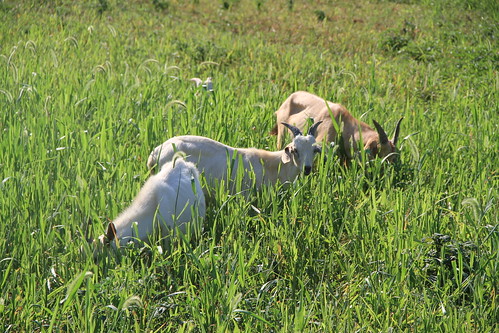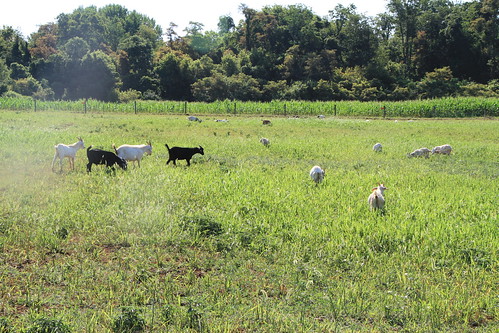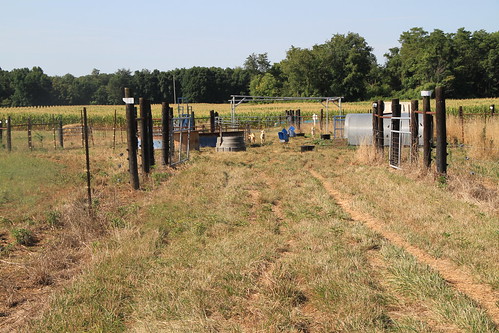 |
| Grazing down dwarf pearl millet |
The goats spend a considerable amount of time in their port-a-huts and hovered around the handling system. They are still grazing a two-acre field of dwarf pearl millet. It is holding up well, but will not sustain the goats for too many more days.
The goats have still shown no activity with the protein tubs and have not been observed eating the round bale of hay. The later is good because it shows that the goats are getting enough to eat in the pasture.
Individual fecal egg counts from July 15 ranged from 0 to 2,975 epg and averaged just 265 eggs per gram. With the persistent dry conditions, low egg counts were anticipated. Coccidia oocytes were observed in 71 percent of the samples.
Only seven goats had fecal egg counts above 1,000 epg for an average of 1,906 epg. Three of these goats had FAMACHA© scores of 3 and were dewormed with levamisole (Prohibit® drench, 3 ml/50 lbs.) on July 15. Levamsiole treatments have successfully reduced fecal egg counts in goats that have required anthelmintic treatment.
 |
| The test site received ~0.3 in. rainfall on 7/25 (p.m.). |
Australian researchers have developed a Moisture Index to predict the development success of the barber pole worm. While temperatures have been mostly optimal (77º to 95ºF) for development from egg to larvae, the lack of moisture is severely limiting the development success of the barber pole worm at the test site.
On Thursday, another pooled fecal sample will be collected to determine the composition of the worm load. However, if the egg count is too low, it may not be possible to make this determination. The July 1 pooled sample contained 100 percent Haemonchus (barber pole worm) eggs.












